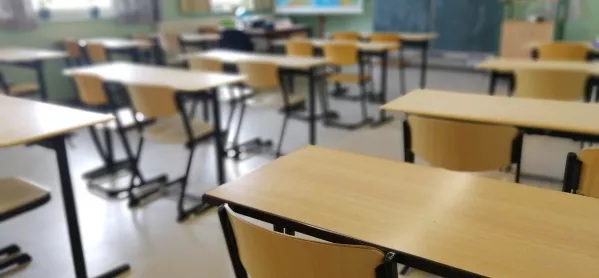It’s been a rather hectic few weeks, with barely a moment to think about the next decision to be made, let alone record it. As I was in school on Good Friday, with our small group of key workers’ children, I spotted a couple of things in my office, and, like with so much lately, I saw them in a new light.
Firstly, on the wall was my brief school development plan. I’ve never been a fan of long documents, partly because I find they very quickly get out of date, but also because trying to plan in June of one year what actions will be taken the following spring always seems ludicrous to me. That couldn’t be more true this year. I don’t imagine there are many schools whose improvement planning cycles were based on six months of action followed by a random fallow period.
Also in my office, though, is my school logbook. Well, two of them actually. I have one dating from the 1960s that runs up until 1992, then another that starts with my arrival at the school. I’ve always liked the idea of keeping a school log, and like to continue the tradition, but somehow it seems almost indulgent to add my ill-scribed ramblings to the beautiful pages of handwriting from headteachers gone by.
As it is, even my current log is wildly out of date. Occasionally I add important events as they come, but usually it’s something I catch up with at each half-term break. And so it is that my current school log contains everything right up to the point where things got uniquely interesting this year. While I’m sure that historians in generations to come will be gripped by the Ofsted outcome and the house cup results, it seems that these latest events will somehow outshine them.
Write down your experiences of the coronavirus crisis
That’s the glory of an old-fashioned school log: the mix of mundanity with the spectacular. Side by side, comments about the retirement of a long-forgotten school governor, with the description of the damage waged by a tornado; positive remarks about the needlework produced by the junior girls, swiftly followed by a summary of the impact of a global pandemic.
There will be plenty of schools, no doubt, with an old book somewhere recording the local impact of the Spanish Flu, the Second World War or the three-day week in ways that no other document can. And yet, so few of them are maintained. My own school’s log comes to an abrupt end around Easter of 1992, presumably when the requirement to keep the log ceased. And who could blame a headteacher for letting an unnecessary task get dropped?
And yet, what a gap it leaves in the historical record. No indication of how the school and its community might have celebrated the millennium; no record of recent jubilees; no indication of the comings and goings of staff or major events. Who knows what else was missed?
So while it might not be the first thing on the list right now in schools, I want to make a plea to teachers everywhere to think about how these strange events get recorded. Maybe there is an old school log that can be revived. Maybe it’s just a scrapbook of photos and memories from these weeks. Perhaps, in this modern day, it’s an electronic record that can be secured for the future.
Most importantly, while there will be endless accounts written of the national situation, where else will the experience of schools and their pupils be recorded for future generations to look back on?
Michael Tidd is headteacher at East Preston Junior School in West Sussex. He tweets @MichaelT1979




